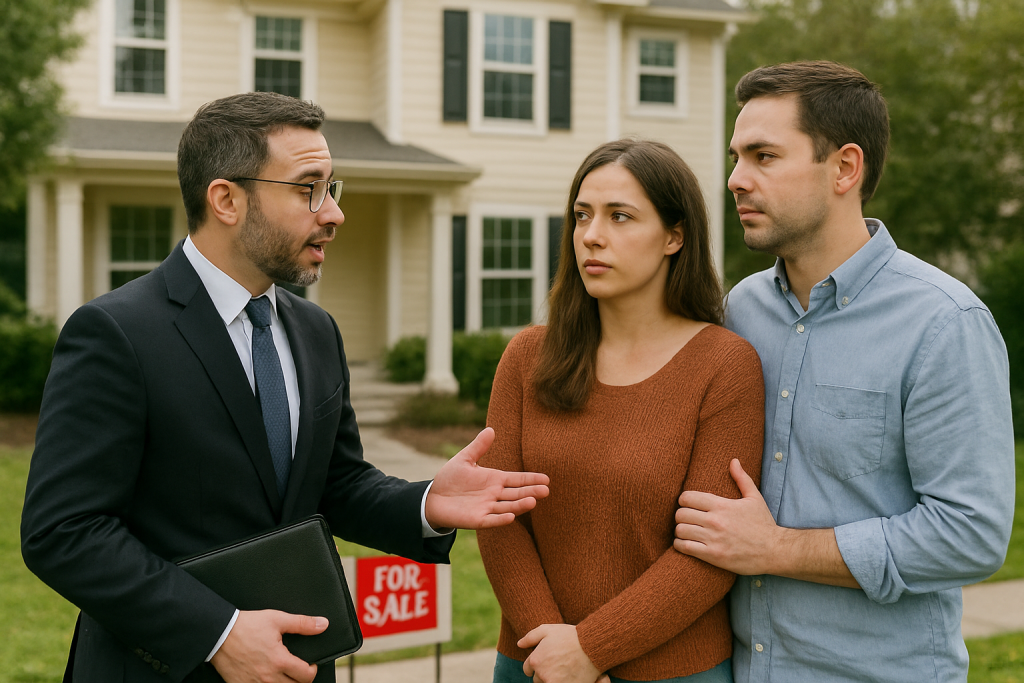Settle Property Disputes With No Money Down
At Talkov Law, we specialize in partition actions in Merced County, leveraging our extensive experience in real estate law and deep understanding of local market conditions to protect your rights and maximize your property’s value. Our team is equipped with strong negotiation skills, expertise in property valuation, and a proven track record of handling distressed properties to ensure successful outcomes for our clients.
- Zero Partitions Denied
- 500+ Partition Cases Filed
- Most Cases Resolved in Under 7 Months
- No Fees Unless You Win!
Call Now at (209) 600-7700

Partition Dispute Solutions Begin With Your Next Step
At Talkov Law, our experienced attorneys guide you through every step, handling the legal challenges so you can focus on what’s next.
Co-Ownership Conflict? Not Anymore.
Get your co-ownership dispute settled quickly—typically in under 7 months and with no upfront cost.
Talkov Law Partition Attorneys stand apart as the only California firm focused solely on partition actions, having guided hundreds in cases like yours.
Get Your Free Consultation
Take the first step toward resolving your co-ownership—book your free consultation today.

Start the Legal Action Process

Walk Away With Your Fair Share
What is a Partition Action?
A partition action is a court-enforced solution requiring the sale or division of jointly owned property when owners disagree.
Common Scenarios
- Disagreements over selling a jointly purchased property
- Co-owned condos where one owner blocks the sale
- One co-owner refusing to pay their share of expenses
In California, any co-owner has an absolute right to partition real property under California Code of Civil Procedure 872.710.

Trusted Partition Lawyers for Hundreds of Californians
From complex legal battles to life-changing victories, our clients share how Talkov Law helped them find clarity, confidence, and success.
Frequently Asked Questions About Merced County Partition Actions
If you’re wondering whether you can force a sale, how expensive it might be, or how long the process could take, this FAQ has answers. If your question isn’t listed, your free consultation is just a click away.
📞 Call (877) PARTITION 📞
What is a Partition Action in Merced County?
A Partition Action in Merced County, under California law, is a legal process where co-owners of real property can request the court to divide the property or sell it and distribute the proceeds among the owners.
How long does a Partition Action take in Merced County?
Partition actions in Merced County handled by Talkov Law are often resolved in about 7 months, sometimes faster when co-owners are willing to negotiate a buyout or sale. Complex co-ownership situations, such as shared businesses or unrelated financial ties, can extend this timeline.
What happens if the property can't be physically divided in Merced County?
If the property cannot be physically divided in Merced County, the court may order the property to be sold and the proceeds distributed among the co-owners according to their respective interests.
What if a co-owner made improvements or paid more in Merced County?
In Merced County, if a co-owner has made significant improvements or paid more towards the property, the court may consider these contributions when determining the final division of proceeds in a California Partition Action, potentially awarding a larger share to the contributing party.

Merced County Real Estate and Legal Data
- In Merced County, the median home value is around $400,000.
- Merced County has an estimated population of 277,680.
- The average rent in Merced County is around $1,500 per month, as of 2024..
At Talkov Law, our Merced County Lawyers have resolved partition disputes in under 7 months with our expert partition strategies.
Why Choose Talkov Law for Your Partition Case?
- Unparalleled Record: 470+ Partition Cases – The most of any partition law firm
- Unique Focus: The only California practice with exclusive dedication to partition law
- Perfect Record: Every partition granted across 16+ years


Partition Attorneys Serving All of Merced County
We also serve clients near Madera, Los Banos, Atwater, Chowchilla, Mariposa County, Livingston, Dos Palos, and Gustine.
Our attorneys have extensive experience handling partition actions across Merced County.
Local Expertise in Neighborhoods Like: Stanislaus County, Madera County, and Mariposa County.. Also Serving Areas in:Stanislaus County, Modesto, Gilroy, Morgan Hill, and San Joaquin County.
Your case will likely be heard at the Merced County Superior Court, located at 2260 N Street, Merced, CA 95340.


































































































































